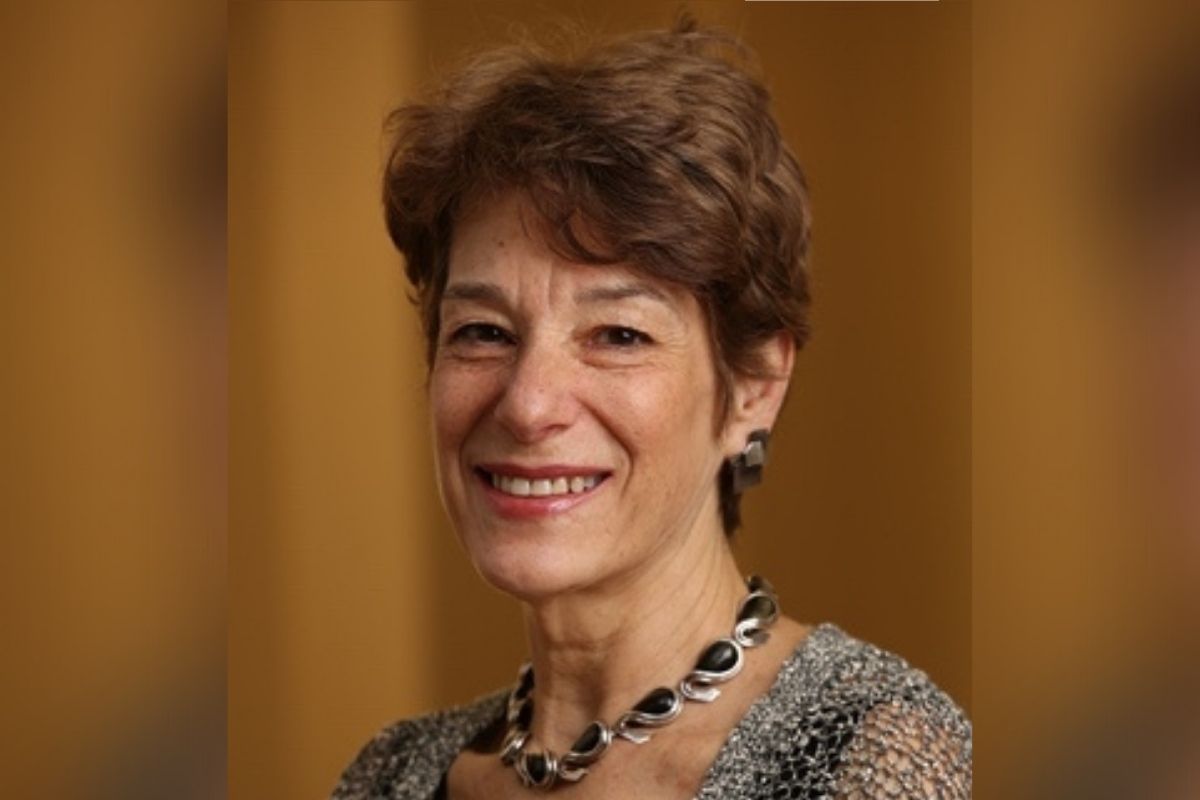Years before serving as TC’s Associate Vice President for School & Community Partnerships, Nancy Streim glimpsed her true calling in an early career position as the education director for a Rochester museum. But it didn't start coming together until the career arc brought Streim, by then Streim with a Ph.D. in child language development, to the University of Pennsylvania where she won grants to support the teaching of science education and the development of children’s cognitive skills.
“I didn’t want to be just a scholar when I came to Penn,” Streim recalls. “I wanted to get my hands dirty in education.”
Digging in, Streim “discovered my sweet spot was the interface of higher ed and K-12 education. I’ve always been passionate about kids having educational opportunities, in particular kids without the same privileges many of us have had,” she says. “Not only exposure to a wide variety of arts, culture, sports and travel, but also the development of early career interests and the assumption of a college education.”
That sweet spot has in the years since broadened the academic horizons, and lives, of children educated at university-partnered public schools developed and launched by Streim in Philadelphia and New York, including the College’s own Teachers College Community School (TCCS).
Recorded in 2019, a video on the work of the Teachers College Community School.
It is a legacy enshrining Streim upon her Dec. 31 retirement from her Associate VP position at TC and as a Special Advisor to the Columbia University Provost.
“During her hugely consequential 14-year tenure as Associate Vice President, Nancy has led some of the most transformational developments in the College’s recent history,” said President Thomas Bailey. “Nancy Streim has earned a national reputation for creating models for university-assisted community public schools, and her tenure at TC has made us a stronger and better institution.“
Streim’s vision for TCCS began to take shape when she worked under TC alumna and future College president Susan Fuhrman at Penn’s Graduate School of Education, which had long sought ways to strengthen the university's relationship with residents in the surrounding neighborhood.
The Penn Alexander School she developed, along with the affiliated “Penn partnership schools” network launched by the Graduate School of Education represented a departure from most university-affiliated learning models. The schools for one thing didn't fall into the charter, magnet or private education categories but were purposely managed as Philadelphia public schools.
“University-sponsored schools many times are about establishing hubs for teacher education and teacher professional development,” Streim explained. “Susan and I came at it with a different point of view – to establish the schools our neighbors wanted and then embed teacher preparation and development. If we're going to work with our community, then understanding what our neighbors want was always at the forefront.”
Reunited in New York, the scholars embraced the same standard in the planning of a Harlem community school that began two years after Fuhrman's 2006 appointment as TC's first female president.
“We didn't want an exclusive TC lab school,” said Streim. “We wanted a New York City public school that served kids living down the street.”
TCCS, which today boasts lower (Pre-K through second grade) and upper Harlem (third through eighth-grade) campuses, is the highest performing public K-8 school in Harlem's School District 5. It does not, however, represent TC’s first foray into K-12 education.
TC established the Speyer School in 1904 as the first university-affiliated community school in New York City. It then went on to build the Horace Mann School and the Lincoln School, however, TCCS was the College’s first contemporary foray into K-12 public education.
To traditional public school to rival the growing popularity in charter schools, Streim devoted herself to engaging with an assortment of stakeholders that included the TC faculty, the West Harlem community, NYC Schools Chancellor, the mayor's office and the New York State Board of Regents.
The TC departments of music and science education were among the first to invest time, faculty and students in the children’s education. Other departments soon followed and today TCCS models the best practices learned in TC classrooms.
The return to in-class learning brought 43 TC students to the TCCS campuses in the first semester of the 2021-22 academic year.
Streim calls the development of TC students “the other side of what has inspired me through the years; watching our students hone their pedagogical skills as they find ways to apply their fields of study to kids in Harlem. They always end up being grateful for the opportunity.”
No less is the gratitude shown Streim by TC and colleagues as she approached retirement – with honors that included a reception that hosted partners from the community and schools.
For a scholar with a sweet spot at the intersection of K-12 and higher ed, it can’t get much better than that.
